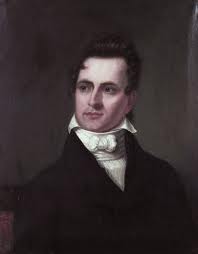Get Today in Masonic History into your Inbox. Sign up today for one of our email lists!
Need an article for your Trestleboard/Newsletter see our Use Policy
Theodric Romeyn Beck Passes Away

Today in Masonic History Theodric Romeyn Beck passes away in 1855.
Theodric Romeyn Beck was an American physician and author.
Beck was born in Schenectady, New York on April 11th, 1791. He graduated from Union College at age 16. He went on to Columbia University, College of Physicians and Surgeons, graduating with a Doctor of Medicine at the age of 20.
In 1813, two years after Beck had returned to Albany to start a medical practice, he submitted a paper to the Albany Society of Arts regarding the mineral resources of the United States.
In 1815, Beck was appointed professor of the institutes of medicine, and lecturer on medical jurisprudence in the College of Physicians and Surgeons of Western New York. He became a leader in medical jurisprudence. Medical jurisprudence is the study and use of medicine and science to solve legal issues.
In 1817, Beck became the principal of the The Albany Academy, a day school for boys started in 1813. There he influenced many young minds including Joseph Henry, the future curator of the Smithsonian Institution. Before he left the post in 1848, he served as a professor of medical jurisprudence at Fairfield Medical College from 1826 to 1836. He also served as a professor of materia medica both at Fairfield College and Albany Medical College.
In 1823, while Beck was serving as the secretary of the Society for the Promotion of Useful Arts (SPUA), he founded the Albany Lyceum of Natural History. It's purpose focused on the preservation of mineral and botanical specimens collected in New York State surveys.
Also in 1823, Beck wrote his most well known work Elements of Jurisprudence. In the book, he wrote information on the foundations of forensic sciences, poisons and medicines.
In 1829, Beck was chosen as President of the New York State Medical Society. At the same time he became the manager of the state lunatic asylum. Lunatic Asylum's of the time not only included the mentally ill, it contained individuals with physical infirmities such as the blind, the deaf and the mute. While there, he collected statistics on deaf-mutes. He used the information to influence the legislature to pass laws for the education of the mentally ill.
Beck passed away on November 19th, 1855. He died from arteriosclerosis, a hardening of the arteries, which claimed Beck's brother 4 years before.
Beck was a member of Masters Lodge No. 5 in Albany, New York.
This article provided by Brother Eric C. Steele.

